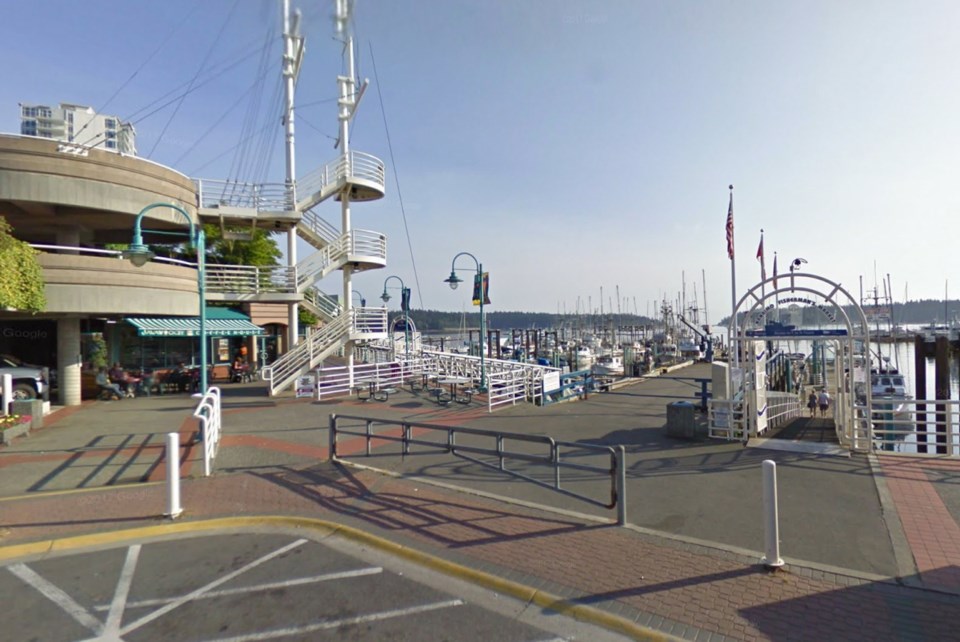Plans for a high-speed passenger-ferry service between the port of Nanaimo and Waterfront Station in downtown Vancouver were announced Thursday by a Toronto private equity firm.
Details are skimpy but Rupesh Amin, chief executive and founder of Conqora Capital Partners Inc., said the ferry will be privately funded, and more information will be released in coming weeks.
“I imagine a lot of people are thinking: ‘I’ve heard this before,’ ” he quipped to the Times Colonist in an interview.
That’s because a commuter ferry between downtown Nanaimo and Vancouver has been tried, unsuccessfully, many times before. Three services started and ended after collapsing financially. Others have announced plans for a foot-passenger ferry that failed to materialize.
There’s no question that many in Nanaimo are eager for a walk-on ferry — it’s been a perennial election issue for decades.
The latest venture comes as Nanaimo’s population tops 100,000 and construction of multi-family homes booms in the harbour city, raising the possibility of people buying homes in Nanaimo and commuting to work in Vancouver, where home prices are higher.
Amin said the company has examined previous attempts to run a passenger ferry and how they failed — including being thinly capitalized and not having an appropriate financing structure in place. Thinly capitalized means a company is carrying a heavy amount of debt relative to equity.
Another drawback was having just one ferry, often a used vessel that may not have been suitable for local waters.
In some cases, agreements or arrangements were not in place to allow for long-term operation.
Amin said the company has signed two agreements, including one with Snuneymuxw First Nation called a Recognition, Cooperation and Benefits Agreement, which authorizes the ferry to operate in Snuneymuxw Territory and recognizes the First Nation’s rights, lands and waterways. The accord aims to establish a long-term relationship of respect and mutual benefit and to provide a meaningful contribution to the local and regional economy, the company said.
The other agreement provides for a long-term lease with the Nanaimo Port Authority to use its assembly wharf and on-shore facilities.
Donna Hais, chair of the Nanaimo Port Authority, said providing infrastructure that connects Nanaimo to the “rest of the world” is one of the port’s mandates, and “we are excited to be able to connect people through this mode of transportation.”
Ian Marr, chief executive of the port authority, said the lease is for 20 years and allows for extensions.
Snuneymuwx First Nation Chief Mike Wise said the 1854 Snuneymuxw Treaty protects and preserves the nation’s lands and waters, and enables trade and commerce in its territory.
Nanaimo Mayor Leonard Krog, a long-time supporter of a commuter ferry, said Conqora has been working on the project for a long time, and it’s hoped the service will start next spring.
Nanaimo’s strategic plan and economic development strategy highlight the importance of the project, he said.
“This council has made downtown a priority and the arrival of the passenger ferry service aligns with public and private investments in the downtown core such as the Marriot Hotel and the redevelopment of Port Drive and Commercial Street.”
A ferry service would help diversify the economy and attract new employers and skilled workers, he said.
In 1969, Pacific Hovercraft launched a walk-on service on the route with a 35-passenger ferry. The 40-minute trip cost $7, but the venture failed financially. Then Norway’s Kvaerner Fjellstrand started the Royal Sealink Express but that only lasted 10 months before folding, after low ridership.
The subsequent Harbour Lynx Ferry, run by Nanaimo Harbour Link Corp., also ran into financial woes.
Island Ferries Ltd. then tried for several years to get a service in place without success.



